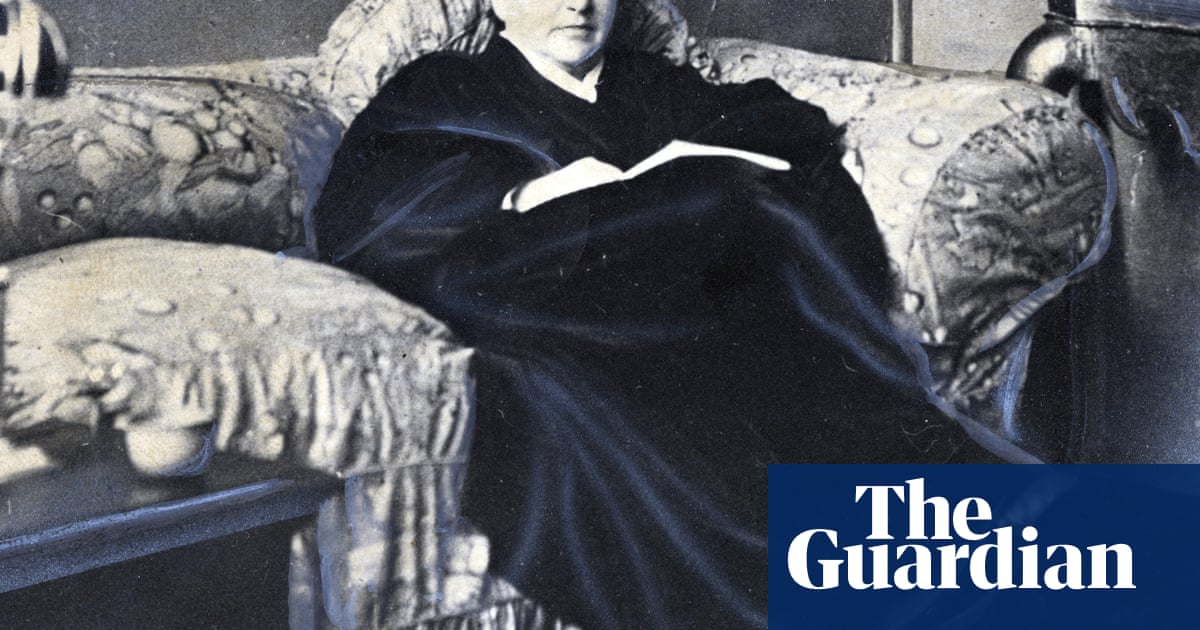
Try our newest merchandise
When The Autobiography of Alice B Toklas was revealed in 1933, it made 60-year-old Gertrude Stein well-known after a long time of obscurity. The e-book painted an exhilarating image of life among the many Parisian haute bohème within the early years of the twentieth century. Picasso, Matisse, Scott Fitzgerald and Ezra Pound all made repeat appearances on the residence in Rue de Fleurus which Stein shared along with her accomplice Toklas. After a long time of pushing language to its limits, Stein had written The Autobiography in a relatively accessible fashion with jokes and anecdotes and full sentences. Or, as one relieved critic famous on the time, Gertrude Stein had lastly began making sense.
On this considerate and deeply researched e-book, Francesca Wade explains that the success of The Autobiography had the unintended impact of shifting the main target from Stein as a author to Stein as a celeb. Whereas she liked the celebrity and cash, what Stein actually wished was to be acknowledged for her earlier, extra radical work by which phrases have been let loose from the shackles of that means and grammar. The truth that her epic The Making of People, composed between 1902 and 1911, did not discover a writer till 1925 had meant that James Joyce and TS Eliot, whose respective breakthroughs got here in 1922 with the publication of Ulysses and The Wasteland, have been recurrently hailed because the founders of literary modernism. This left Stein wanting like a latecomer or, worse nonetheless, a copycat.
To have an opportunity of asserting her primacy, Stein wished her total archive, revealed and unpublished, novels in addition to buying lists, deposited at Yale the place it can be made obtainable for generations of students and critics (not biographers, whom she hated). Their job, as she noticed it, can be to revive “Gertrude Stein” to her rightful place because the true originator of what she referred to as “trendy writing”. Largely, the plan labored. Steadily the suggestion that Stein was a pretentious fraud light away to get replaced by the thought she was a blinding innovator who had blown the cobwebs off literary language and ushered in an solely new means of recording human expertise.
By giving her e-book the subtitle “An Afterlife”, Wade indicators that it’s this course of of creating and remaking Gertrude Stein’s posthumous fame that’s her most important focus. So it is odd that she spends half her prolonged textual content retelling Stein’s very well-known life, from the early days as a medical scholar in Baltimore to the final scary years hiding out from the Nazis within the French countryside (though they seldom acknowledged their Jewishness, Stein and Toklas knew that they have been at excessive threat of being despatched to a focus camp). Because of this, it isn’t till web page 204, following Stein’s loss of life from most cancers in 1946, that Wade embarks on the extra attention-grabbing and unique facets of her investigation.
At this level we’re launched to a new forged of characters – the librarians, teachers and even despised biographers – who pile into Yale and rifle via the large archive. Inevitably there are rivalries and fallings out. One of many chief actors is Leon Katz, who interviewed Toklas within the winter of 1952 and plucked up the braveness to point out her a vitriolic assault that Stein had written in 1907 describing her future life accomplice as “ungenerous, conscienceless, imply, vulgarly triumphant and remorselessly caddish, in brief simply plain low”. Katz guarded his notes like a terrier, even refusing to point out them to the equally tenacious Janet Malcolm when she was writing her personal examine of the Stein-Toklas relationship in 2007. However on Katz’s loss of life in 2017 his notes handed into the archive and Wade believes she is the primary individual to have made use of them, though they have been revealed in 2021.
It is a huge win, not least as a result of it throws new mild on the genesis of The Autobiography. Removed from being a celebration of a serene and settled relationship, it now appears as if the crowd-pleasing basic was composed by Stein in a determined try and preserve Toklas from storming out after one provocation too many. But when Wade had written a shorter and extra centered investigation of Stein’s posthumous reptuation, maybe it would have showcased her achievement to even higher impact.
after e-newsletter promotion

![[Windows 11 Pro]HP 15 15.6″ FHD Business Laptop Computer, Quad Core Intel i5-1135G7 (Beats i7-1065G7), 16GB RAM, 512GB PCIe SSD, Numeric Keypad, Wi-Fi 6, Bluetooth 4.2, Type-C, Webcam, HDMI, w/Battery](https://m.media-amazon.com/images/I/71LYTzK2A8L._AC_SL1500_.jpg)



![[UPDATED 2.0] Phone mount and holder compatible with Samsung Z Fold 2 3 4 5 6 Pixel Fold or Foldable phone | bicycle, treadmill, handlebar, elliptical, stroller, rail, handle, roundbar, golf cart](https://m.media-amazon.com/images/I/51CjGlidGRL._SL1023_.jpg)








